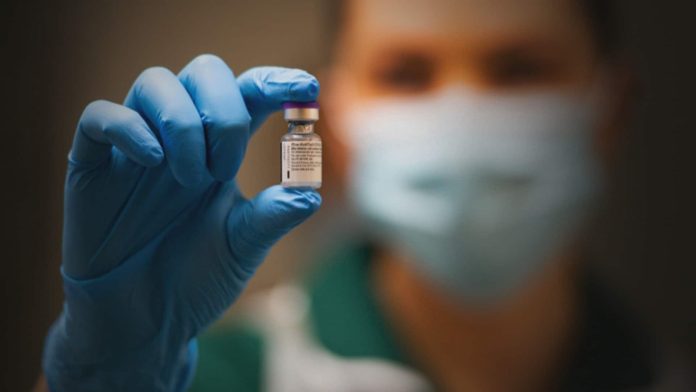
Canada’s supply of AstraZeneca’s COVID-19 vaccines will come from the United States, the federal government said Friday, despite the vaccine manufacturer indicating just 12 days ago that those doses would come from India.
Canada has an agreement with AstraZeneca to buy 20 million doses of its vaccine, which is still awaiting approval from Health Canada.
Procurement Minister Anita Anand said the advance purchase agreement the government has with AstraZeneca “has the doses coming from the United States.” She specified at a press conference that the doses will arrive in the second and third quarter of the year, from a facility approved by Health Canada.
“We are negotiating the precise weekly delivery schedule with the supplier at this time,” Anand said. She added that the vaccines Canada will receive separately, from its participation in the international vaccine-sharing initiative COVAX, will come from South Korea.
Anand said she doesn’t expect that an executive order put in place by former U.S. president Donald Trump to prioritize Americans in receiving U.S-made vaccines would pose a problem for those shipments.
“The decree from the previous president, to our understanding, doses that are subject to a contract between a supplier and another jurisdiction, those doses are able to leave the United States,” Anand said.
But Anand’s comments came as the spokesperson for U.S. President Joe Biden said that the American government would prioritize getting vaccines to its own citizens. Press secretary Jen Psaki stated Friday that U.S. vaccine manufacturing capacity will primarily be aimed at the domestic rollout, The Canadian Press reported.
The announcement that the vaccines will come from the U.S. also appears to be a change of policy from plans that were in place less than two weeks ago, when an AstraZeneca spokesperson indicated there was a deal in place for Canada to procure those vaccines from India.
On Feb. 1, in response to a question asking where the vaccine will come from if it is approved by Health Canada, an AstraZeneca spokesperson said AstraZeneca had signed a sub-licensing partnership with the Serum Institute of India for the manufacture of the vaccine. The spokesperson said Mississauga-based Verity Pharmaceuticals was supporting the Serum Institute of India in its regulatory registration, and the importation and distribution of the vaccine in the country following Health Canada approval.
AstraZeneca did not respond to requests for comment Friday afternoon.
Conservative health critic Michelle Rempel Garner had pressed the government last week about whether Anand or Prime Minister Justin Trudeau had reached out to Indian Prime Minister Narendra Modi about procuring vaccines from that country. Trudeau then spoke to Modi earlier this week.
At a press conference Friday, Trudeau said Canada is looking at additional vaccines that could potentially come from India.
“We are looking at possible extra vaccines coming from India, from the Serum Institute. Work is being done closely on that,” Trudeau said.
He said his call with Modi was “on a range of subjects, including the role that India is playing in producing vaccines for the developing world, and other issues that are important to us.”
Anand was also asked about the prime minister’s comment regarding extra vaccines coming from India. She said the government negotiated seven advance purchase agreements with leading vaccine manufacturers.
“In addition, at the same time, we also were engaged in conversation with other manufacturers around the world for possible additional doses of vaccines for Canadians,” Anand said. “In fact, I had a conversation with the Serum Institute on August 7, 2020, in which we discussed a possible relationship with Canada for the production of vaccines at that time.”
She described those conversations, which included the Indian High Commissioner to Canada and took place over the past year, as “very fruitful.”
“Our arrangement is currently being finalized. And as soon as it is finalized, I will have more information to share with you and with all Canadians,” Anand said.
Canada may be unlikely to be selected to receive any of India’s extra vaccines, according to University of Waterloo professor Ryan Touhey. Touhey, a historian of Canada-India relations, said the relationship between the two countries has become more fraught in recent years under the Trudeau government, due to factors including a “disastrous” state visit in 2018, and Trudeau’s comments late last year on ongoing farmers’ protests in the country, which were not well received by Modi.
He said if India does have extra vaccines, it is likely to put them to use in efforts involving vaccine diplomacy.
“My strong sense is that any extra vaccine that India will have, it will be sending to countries in Africa who require it,” and to other countries in South Asia in order to promote and showcase “India’s scientific abilities,” he said.
Touhey pointed out that vaccine rollout gives India a chance to compete with China when it comes to public and cultural diplomacy in Africa and South Asia and to score political points in those regions.
“I just don’t see Canada having the same political value for the Indians in terms of bumping us up the list,” Touhey said.































